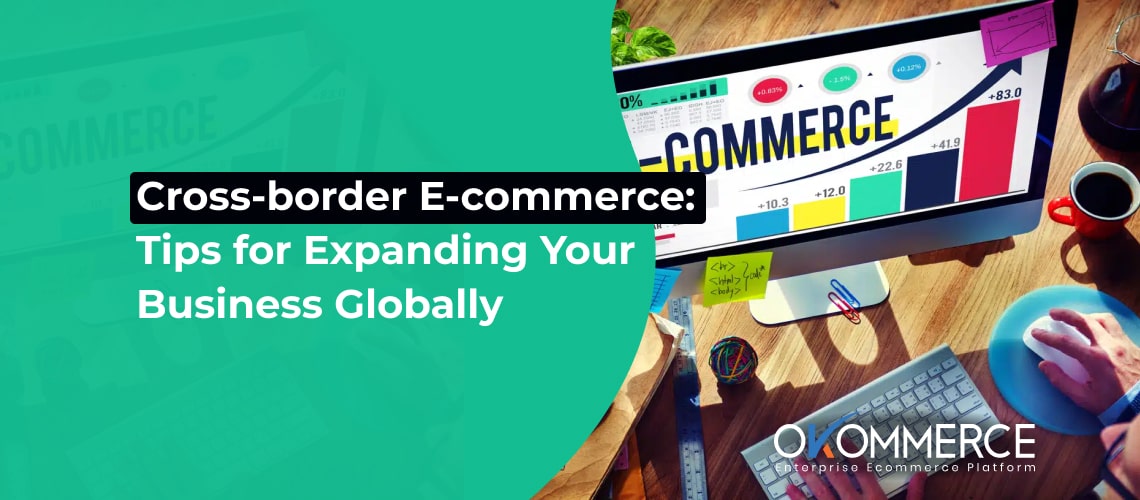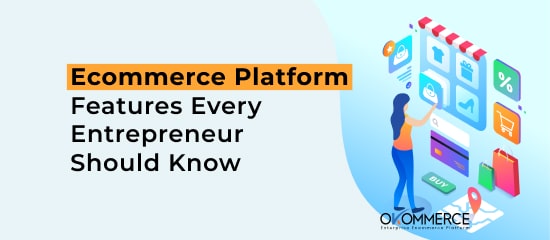Cross-Border eCommerce: Tips for Expanding Your Business Globally

After the pandemic eCommerce environment has changed dramatically, now, owners can get thousands of business opportunities both in the country and abroad through online platforms. Cross-border eCommerce is such an innovative way to expand your eCommerce business.
Cross-border eCommerce has revolutionised how businesses sell and reach customers worldwide. With the growth of eCommerce platforms, businesses can expand their reach beyond their home countries, opening up new markets and opportunities for growth.
With the rise of cross-border eCommerce, it's easier than ever to reach customers worldwide and grow your business globally. However, with this opportunity comes unique challenges, including navigating different cultural and legal landscapes, managing international logistics, and optimising your website for international customers.
This guide will explore some essential tips for expanding your business globally through cross-border eCommerce. Whether you're looking to enter new markets or improve your existing international strategy, these tips will help you navigate the complexities of cross-border eCommerce and succeed in the global marketplace. So, let's dive in and discover how to take your eCommerce business to the next level, no matter where you want to do business!
Why Should You Consider Cross-Border eCommerce Business?
Cross-border eCommerce presents a significant opportunity for businesses looking to expand their reach and grow their customer base. Here are some key reasons why you should consider cross-border eCommerce for your business:
- Access to New Markets: By selling internationally, you can tap into new markets and reach customers needing access to your products or services in their local area. This can help you diversify your customer base and increase your sales potential.
- Increased Revenue: Selling internationally can significantly increase your revenue potential. According to a recent study, cross-border eCommerce sales are expected to reach $1 trillion by 2022. Expanding your business globally allows you to tap into this growing market and increase your sales.
- Lower Competition: Depending on your niche, you may face less competition in international markets than in your home market. This can help you gain a foothold in new markets and establish yourself as a leader in your industry.
- Cost Savings: Depending on the country, cross-border selling can offer cost savings opportunities. For example, businesses can source products or raw materials at lower costs in certain countries or may be able to take advantage of lower taxes or tariffs.
- Brand Exposure: Selling internationally can help increase your brand exposure and raise awareness of your business in new markets. This can help establish your brand as a global player and increase brand recognition.
- Diversification of Revenue Streams: By selling in multiple markets, businesses can diversify their revenue streams and reduce reliance on one market. This can help mitigate risks associated with economic downturns or other disruptions.
Key Trends That Highlight Cross-Border eCommerce
- Increasing Cross-Border Sales: According to a report by eMarketer, cross-border eCommerce sales are expected to reach $1 trillion by 2022, up from $300 billion in 2015. This represents a significant increase in sales over just a few years.
- Expansion of eCommerce Platforms: eCommerce platforms such as Amazon, eBay, and Alibaba have made it easier for businesses to sell cross-border by providing access to new markets and customers. These platforms have also invested in infrastructure and logistics solutions to make cross-border transactions more seamless.
- Advancements in Technology: Advancements in technology, such as mobile devices and social media, have made it easier for businesses to connect with customers worldwide. This has led to increased opportunities for cross-border sales and marketing.
- Changing Consumer Behavior: Consumer behaviour has also shifted in favour of cross-border eCommerce, with customers becoming more comfortable buying from international sellers. This is particularly true for younger consumers, who are more likely to shop cross-border than older generations.
- Decreasing Trade Barriers: The growth of cross-border eCommerce has also been supported by decreasing trade barriers, such as lower tariffs and more streamlined customs processes. This has made it easier and more cost-effective for businesses to sell across borders.
Tips To Grow Your eCommerce Business Globally
Expanding your eCommerce business globally through cross-border selling can be a challenging yet rewarding endeavour. To successfully navigate the complexities of cross-border eCommerce, here are some key tips to keep in mind:
- Research and Understand Your Target Market: Before expanding into new markets, it is essential to conduct thorough research to understand the cultural, legal, and economic landscape of your target market. This can help you tailor your marketing and sales strategy to meet that market's unique needs.
- Localise Your Website and Marketing Materials: To effectively market your products to customers in other countries, localising your website and marketing materials is crucial. This may include translating your website into the local language, adapting your marketing messaging to local cultural norms, and offering localised payment and shipping options.
- Ensure Compliance with Local Regulations: Cross-border eCommerce can be complicated due to different countries' legal and regulatory requirements. It is important to ensure compliance with local regulations, including taxes, customs duties, and data privacy laws.
- Build Strong Partnerships with Local Service Providers: Building strong partnerships with local service providers, such as logistics providers and payment gateways, can help you navigate the complexities of cross-border eCommerce. Local partners can also help you better understand the needs and preferences of your target market.
- Offer Excellent Customer Service: Excellent customer service is essential for building trust and loyalty with customers in other countries. This may include offering multi-lingual customer support, providing clear and transparent communication throughout the buying process, and offering flexible return and exchange policies.
Challenges Of Cross-Border eCommerce
While expanding your eCommerce business globally through cross-border selling can be a lucrative opportunity, there are also several challenges to remember. Here are some of the key challenges you may face:
Compliance with Local Regulations
Cross-border eCommerce requires compliance with different legal and regulatory requirements in each country. This can include taxes, customs duties, data privacy laws, and consumer protection regulations. Failure to comply with local regulations can result in fines, legal issues, and damage to your brand reputation.
Cultural Differences
Different cultures may have different shopping preferences and expectations, impacting your marketing and sales strategies. For example, some cultures may prefer certain payment methods or shipping options or have different customer service expectations.
Shipping and Logistics
Cross-border eCommerce requires shipping and logistics solutions that can handle the complexities of international shipping, such as customs clearance, import/export regulations, and international shipping fees. This can be a significant logistical challenge, particularly for smaller businesses.
Payment Processing
Cross-border eCommerce requires payment processing solutions that handle different currencies, languages, and payment methods. This can be challenging, as different countries may have different payment preferences and regulations.
Language Barriers
Language barriers can be a significant challenge for businesses expanding into new markets. It is important to ensure that your website, marketing materials, and customer service support are available in the local language to communicate effectively with customers.
In-Conclusion
Expanding your eCommerce business globally through cross-border selling can be complex and challenging, but it also presents significant opportunities for growth and increased revenue. By understanding each target market's unique cultural, legal, and logistical requirements, localising your website and marketing materials, ensuring compliance with local regulations, building strong partnerships with local service providers, and offering excellent customer service, businesses can successfully navigate the complexities of cross-border eCommerce.
While challenges are certainly involved in cross-border eCommerce, such as compliance with local regulations, cultural differences, and logistical complexities, the potential rewards are significant. By tapping into new markets and revenue streams, businesses can diversify their customer base and achieve sustainable growth over the long term. With careful planning and execution, cross-border eCommerce can be a highly effective way for businesses to expand their eCommerce brand globally and achieve new heights of success.
Okommerce is a feature-rich & leading enterprise eCommerce platform. If you own a large-scale business or plan to expand, Commerce can help you with great enterprise ecommerce solutions. Employ this platform to operate your eCommerce business properly. If you are looking for a reliable, secure, and budget-friendly eCommerce platform, get Okommerce today




